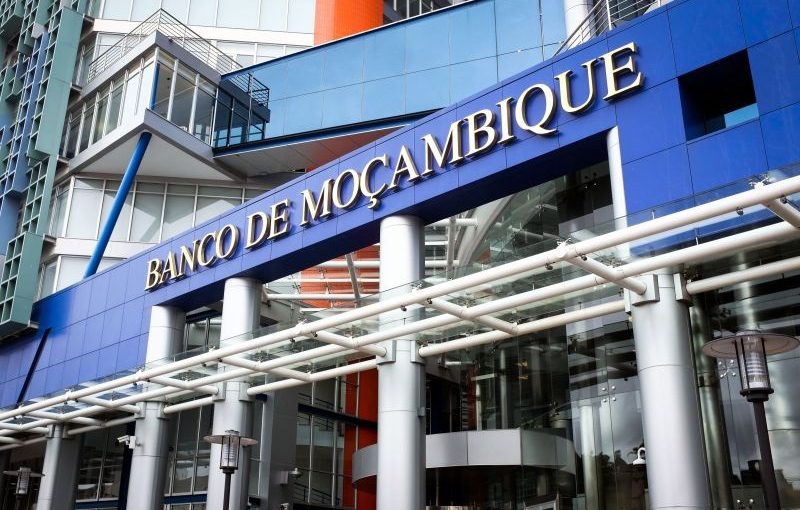Mozambique: 'Paid ride' transport has saved business meetings, pregnant women
Mozambique: Central bank makes €54.9M loss in 2024, lower profit in 2023

File photo: Lusa
The Bank of Mozambique recorded losses of 4.147 billion meticais (€54.9 million) in 2024 and sharply revised downwards the profits initially recorded in 2023, according to financial statements that Lusa consulted on Tuesday.
According to the report, approved on 30 June, the net result for the 2024 financial year, from the individual financial statements, also contrasts with the profits of 886.2 million meticais (€11.7 million) in the previous year, in this case revised downwards from the initial almost 2,339 million meticais (€30.9 million).
“In 2024, the bank identified an anomaly in the computer system, concerning the accounting of exchange rate variations made at the maturity of term deposit and overnight deposit operations, relating to previous financial years up to 2023. In this context, the bank made the appropriate adjustment, which resulted in the retrospective restatement of the 2023 financial year,” the document reads.
According to these statements, the Bank of Mozambique ended 2024 with total assets that grew to 759,175 million meticais (€10 billion), for total liabilities that rose to 754,102 million meticais (€9.9 billion), making up an equity of 5,073 million meticais (€67.1 million).
Court ruling on Moza a “relevant development”
The Bank of Mozambique (BM) also admits that the ruling by the Administrative Tribunal (TA) that annuls the decisions on the intervention in Moza Banco, one of the five largest in the country, is a “relevant development”, but does not estimate its impact.
The position appears in the same 2024 report and accounts of the central bank, consulted today by Lusa, which in the “subsequent events” section states that it was notified of this ruling, the first official reaction to the court ruling since it was announced last April.
“Although the content of the decision represents a relevant development, the materialization of the ruling still requires further actions that should be instructed by the competent authorities. In fact, at the date of approval of these financial statements, it is not possible to estimate the possible impact of the ruling,” it reads.
On April 9, Moçambique Capitais assured that the TA ruling annulling the decisions in the intervention at Moza Banco did not jeopardize its activity, and stated that it was in contact with the central bank.
“This ruling, signed unanimously by the 16 judges, puts an end to the dispute between Moçambique Capitais and the central bank, and contacts are already underway with the competent entities in order to determine the best solution for all interested parties,” read a statement to shareholders issued by Moçambique Capitais at the time.
“This process does not interfere with the normal functioning of Moza Banco’s current activity,” also assured the founding company of that bank, which was removed from its management when the BM intervened in 2016, and then appealed to the courts.
The TA plenary upheld the decision to declare null and void the administrative acts of the BM and the intervention at Moza Banco, previously participated in by the Portuguese bank Novo Banco, rejecting the appeal by the central bank.
At issue, according to the TA ruling reported by Lusa in April, is the way in which the central bank carried out the intervention in Moza Banco – citing at the time the bank’s financial situation and its systemic risk – announced by a notice published on November 14, 2016, in the Boletim da República (BR).
“It is easy to understand that it came into force and began to produce legal effects as of November 14, 2016, when in fact Moza Banco was intervened by the BM on September 30, 2016, before the publication of the controversial notice,” reads the ruling, notified on April 1, in response to the appeal to the same decision of the previous instance, filed by the Bank of Mozambique, whose governor has been Rogério Zandamela since August 2016, and by Moza.
“The appellant is mistaken and contradicts himself in his position when he argues that in order to legitimise Moza Banco’s intervention it was not necessary to publish the notice of the BM governor in the BR. However, he proceeded with the publication of the competent notice 44 days after his intervention,” the ruling adds, in which the first decision is fully confirmed, in favour of Moçambique Capitais, a minority shareholder (around 3%), but which at the time was the majority shareholder and founder of the bank.
In 2016, Moza Banco came to be led by Kuhanha, the management company of the Bank of Mozambique’s employees’ pension fund (currently over 60% of the share capital), following the intervention of the central bank, at a time when Moza had the Portuguese Novo Banco (successor to Banco Espírito Santo) as one of its main shareholders (49%).
The Administrative Tribunal ruling recalls that at the time of the intervention, Moçambique Capitais held a 51% shareholding in Moza Banco, in the amount of 1,085,875,000 meticais (15.5 million euros, at current exchange ratse). However, this stake was now worth 217,175,000 meticais (3.1 million euros), due to the “reduction of the share capital immediately followed by an increase in the share capital, with a consequent devaluation induced in the value of the share certificate, from 25,000 meticais to 5,000 meticais [358 to 71.5 euros]”.
The TA decision annuls “materially administrative acts”, such as “the intervention and adoption of the extraordinary measure to restructure Moza Banco”, and the appointment of a board of directors.












Leave a Reply
Be the First to Comment!
You must be logged in to post a comment.
You must be logged in to post a comment.